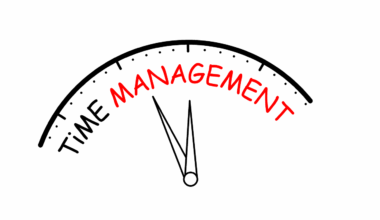Downloadable Pitch Deck Templates for Startup Funding Success
Creating an effective pitch deck is vital for any startup looking to secure funding. The right pitch deck not only communicates your business idea but also captures the attention of potential investors. You need to ensure that your presentation is visually appealing, concise, and effectively conveys your unique value proposition. A compelling pitch deck typically includes several key sections, such as an executive summary, market analysis, competitive landscape, financial projections, and a clear call to action. Various resources are available to help you design the perfect pitch deck. Utilizing free or paid templates can streamline the process and provide a professional touch. Many entrepreneurs turn to websites that specialize in startup resources to find templates tailored to their specific needs. These templates can minimize design time and reduce the likelihood of errors or omissions. It is essential to customize each template to reflect your brand’s personality and message. By carefully crafting your pitch deck, you enhance the chances of obtaining the funding necessary to launch or scale your startup successfully. Investors appreciate clarity and confidence, so make sure your deck delivers both.
Investors often receive numerous pitch decks, making it crucial for yours to stand out. Begin by ensuring your first few slides grab attention to entice investors to continue watching your presentation. Use striking visuals and data-driven insights to engage your audience. A summary slide that highlights your core team, mission statement, and unique selling proposition can effectively communicate your startup’s essence. Emphasizing the problem your startup solves helps backers understand your relevance in the market. Follow this with a detailed overview of your solution and how it stands apart from competitors. Providing clear evidence of market demand is also crucial; include statistics and trends that support your claims. Investors appreciate understanding your target demographics and market potential. Build a narrative around your business story to connect emotionally with potential backers. Illustrate milestones achieved and use case studies or testimonials to strengthen your credibility. Each section should seamlessly lead into the next, ensuring a fluid flow of information. A well-structured pitch deck not only showcases your diligence but also paints a clear picture of future success, compelling investors to take action.
Once your pitch deck is nearing completion, it’s essential to focus on revisions and practice. Gathering feedback from colleagues, mentors, or industry experts can provide invaluable insights. It’s not only about the content; get input on the visual elements as well. Engage in mock presentations to refine your delivery and ensure you can present comfortably and confidently. This helps eliminate filler words and awkward pauses that can detract from your message. When you practice, aim to enjoy your storytelling, making the opportunity to present seem exciting rather than a chore. Investors can sense enthusiasm and passion, which can significantly make a difference in their perception. Remember to prepare for potential questions by anticipating what investors might want to know. Having succinct responses ready can reflect your expertise and confidence in your startup’s vision. Keep your pitch concise; the goal is to maintain interest without overwhelming your audience. Finally, ensure that there are clear next steps at the end of your presentation. This encourages engagement following the meeting by prompting investors to take action.
Resources for Pitch Decks
Many resources exist for creating effective pitch decks. Online platforms offering templates can save time and help you achieve a polished look. Tools like Canva or Microsoft PowerPoint allow for easy customization of templates to accommodate your branding. Numerous industry blogs offer insights into the essentials of a good pitch deck. Reading case studies can further help you understand what worked well for others in securing funding. Some startups have shared their successful pitch decks online, which can serve as excellent inspiration. You should analyze these decks to see what elements resonate best with your audience. Websites like SlideShare are perfect for accessing real-life examples that can provide perspective on style and content. Networking in startup communities is also a vital resource. Engaging in forums or workshops can provide insights that are not available in conventional resources. Learn from the experiences of others to help identify potential pitfalls to avoid. Joining dedicated startup groups can also lead to valuable mentorship opportunities, enhancing your chances of funding success.
In addition to utilizing templates and resources, staying updated with current trends and practices is crucial. The startup landscape continually evolves, as do investor preferences. Following industry leaders, attending webinars, and reading relevant literature ensures you stay ahead of the curve. Incorporating new insights into your pitch can greatly improve your chances of engaging investors. Moreover, customizing your pitch for each potential investor can show them the importance of their specific industry expertise. Investors appreciate personalization and the extra effort that indicates you respect their time and attention. Attending pitch competitions is another great way to observe pitches in action. You can gather valuable tips and witness firsthand what captivates an audience. Pay attention to how successful entrepreneurs present their ideas, including their body language and pacing. This information can directly inform how you approach your own pitch. Always be open to learning and refining your strategies based on feedback and observed successes. The startup world is a dynamic environment, and adaptability will serve you well in your funding journey.
Final Thoughts on Pitch Decks
Your pitch deck can make or break your startup’s appeal to investors, emphasizing the importance of creating a standout presentation. A well-structured, visually appealing deck will enhance clarity and engagement. Investors should quickly understand your vision, potential, and market positioning. Craft a narrative that moves logically from problem identification to solution and fiscal viability, ensuring coherence throughout. Remember to keep your content focused and eliminate unnecessary jargon to maintain interest. As you approach your funding campaign, consolidate all the essential information with precise clarity. Highlight your unique value proposition to differentiate yourself from the competition. Use strong visuals to emphasize your data, minimizing text clutter and enhancing understanding. Remember, an effective pitch deck is not merely about aesthetics; it’s about storytelling. Your passion for your startup should shine through in each slide, establishing emotional connections with potential investors. Focus on what makes your venture unique, fostering a memorable experience. The journey to successful funding is gradual, so combine persistence with preparation to maximize your opportunities for success.
In conclusion, crafting an effective pitch deck is an essential part of the startup funding journey. Accessing downloadable pitch deck templates can dramatically reduce planning time. However, dedication to customization and refinement remains vital for attracting investor interest. The templates should serve as a guideline but should never restrict your creativity; adapt them to resonate with your company’s brand identity. Investing time in research and feedback can lead to significant improvements in the overall quality of your presentation. Engage with your audience during pitches, making them feel included in your venture’s story. Recognize that each funding scenario may demand slight adjustments in your pitch, so flexibility is key. The ability to pivot and respond to feedback during your pitch can greatly enhance your chances of success. Beyond securing funding, a powerful pitch lays the groundwork for future partnerships and collaborations. Ultimately, a successful pitch deck transcends the slides; it embodies your startup’s vision, mission, and social impact. Therefore, take the time to develop a winning pitch deck that captures the essence of your startup’s potential.
Securing startup funding often requires more than just financial know-how; it demands impressive storytelling. Founders must present their narratives in a compelling way that resonates with potential investors. Your pitch deck should act as a visual aid, portraying not only statistical evidence but also the emotional connections behind your business idea. Understand that investors are not just funding businesses; they are backing dreams and aspirations. Each element in your pitch deck should reinforce that broader concept of mutual benefit. Invest time into refining your message to ensure clarity and engagement from your audience. Compelling visuals, succinct text, and a compelling closing statement can be crucial in solidifying investor interest. It’s also vital to end on a note that incites further questions. This engagement creates opportunities for dialogue, which can foster connections with potential investors. Consider including engaging stories or testimonials in your deck as well. These narratives can create a relatable context that helps solidify your venture’s relevance in the marketplace. Preparation and passion combined with a memorable pitch can help you build essential funding relationships to support your startup’s goals.


